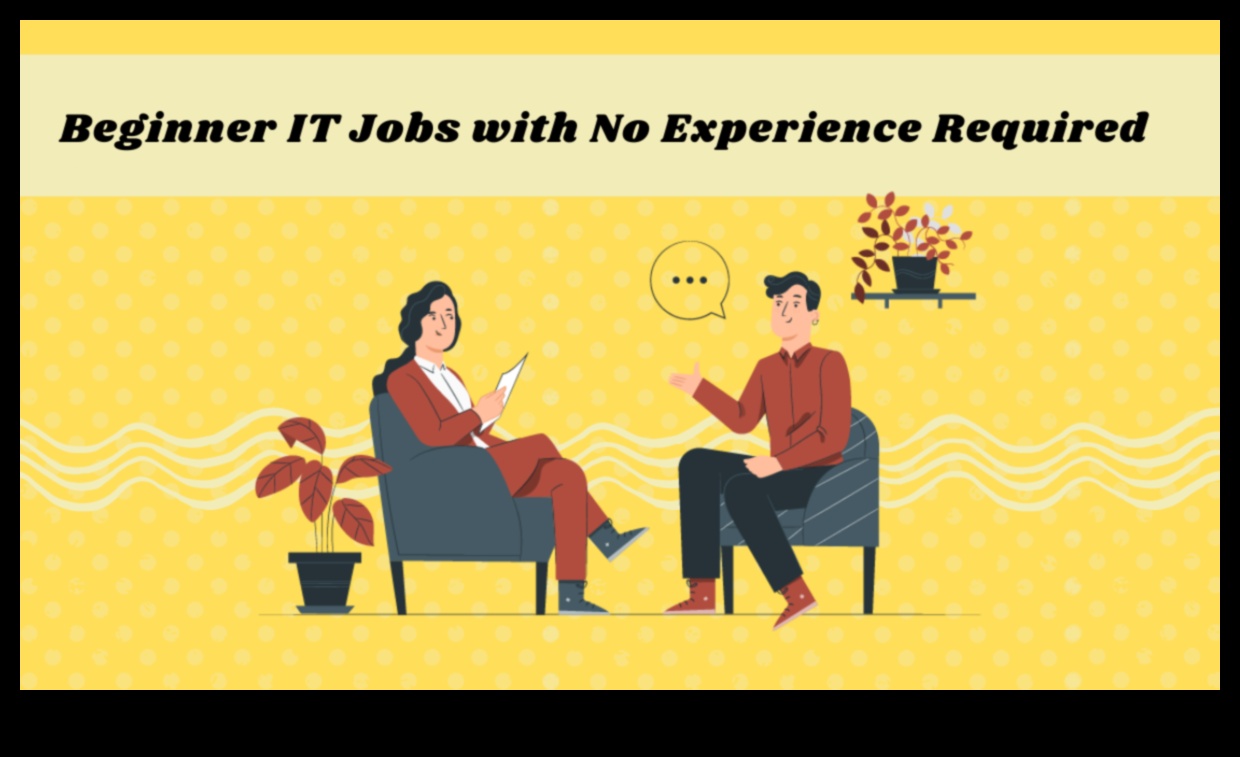
How to get a job without internship experience

Introduction
In today’s competitive job market, it can be difficult to get a job without any internship experience. However, it is not impossible. With some hard work and dedication, you can still land the job you want, even if you don’t have any prior experience.
How to find an entry-level job without experience
The first step to getting a job without internship experience is to find an entry-level job that you are qualified for. This means looking for jobs that don’t require any prior experience or that are willing to train you on the job.
There are a few different ways to find entry-level jobs without experience. You can search online job boards, apply directly to companies that you are interested in, or network with people who know about job openings.
When you are applying for jobs, it is important to highlight your skills and experience, even if they are not directly related to the job you are applying for. You can also include a cover letter that explains why you are interested in the job and why you are a good fit for the company.

The best entry-level jobs for people with no experience
There are a number of different entry-level jobs that are great for people with no experience. Some of the best options include:
- Customer service representative
- Sales associate
- Administrative assistant
- Web developer
- Data entry clerk
These jobs are all relatively easy to get into, and they can provide you with the experience you need to move on to a more advanced career.
How to write a resume for an entry-level job without experience
When you are writing a resume for an entry-level job without experience, it is important to focus on your skills and accomplishments. You can also include a section on your resume that highlights your relevant coursework and extracurricular activities.
Here are a few tips for writing a resume for an entry-level job without experience:
- Use a clear and concise format.
- Highlight your skills and accomplishments.
- Include a section on your relevant coursework and extracurricular activities.
- Proofread your resume carefully before submitting it.
How to prepare for a job interview without experience
When you are preparing for a job interview without experience, it is important to do your research on the company and the position you are applying for. You should also practice answering common interview questions.
Here are a few tips for preparing for a job interview without experience:
- Do your research on the company and the position you are applying for.
- Practice answering common interview questions.
- Dress professionally for the interview.
- Be prepared to answer questions about your skills and experience.
- Be confident and positive during the interview.
How to negotiate a salary for an entry-level job
When you are offered a job, it is important to negotiate a salary that is fair for your skills and experience. You can negotiate your salary by doing your research on the average salary for the position you are applying for. You can also ask for a higher salary if you have additional skills or experience that the employer is looking for.
Here are a few tips for negotiating a salary for an entry-level job:
- Do your research on the average salary for the position you are applying for.
Topic Answer Internship experience Not required for all entry-level jobs Job search Network, apply online, use job boards Entry-level jobs A variety of jobs available, no experience required Career advice Build skills, get experience, network Resume Highlight skills, experience, and education How to find an entry-level job without experience
Finding an entry-level job without experience can be challenging, but it is not impossible. Here are a few tips to help you get started:
Network with people in your field. One of the best ways to find a job is through networking. Talk to your professors, classmates, and friends and family members who work in your field. See if they know of any open positions or can put you in touch with someone who does.
Apply for jobs online. There are many job boards and websites that list entry-level jobs. Take some time to search through these sites and apply for jobs that you are interested in and qualified for.
Attend job fairs. Job fairs are a great way to meet with potential employers and learn about job openings. Dress professionally, bring your resume, and be prepared to answer questions about your skills and experience.
Volunteer your time. Volunteering is a great way to gain experience and network with people in your field. Look for opportunities to volunteer for organizations that are related to your career goals.
Get involved in professional organizations. Joining a professional organization is a great way to stay up-to-date on the latest trends in your field and network with other professionals. Attend conferences, workshops, and other events hosted by professional organizations.
Take online courses or workshops. Taking online courses or workshops can help you develop the skills and knowledge you need to get an entry-level job. Look for courses that are related to your field and that are offered by reputable institutions.By following these tips, you can increase your chances of finding an entry-level job without experience.
III. The best entry-level jobs for people with no experience
There are a number of great entry-level jobs for people with no experience. These jobs can provide you with the opportunity to learn new skills, gain experience, and build your resume. Some of the best entry-level jobs for people with no experience include:
- Customer service representative
- Sales associate
- Administrative assistant
- Marketing assistant
- Web developer
- Accountant
- Software engineer
- Data scientist
- UX designer
When choosing an entry-level job, it’s important to consider your interests and skills. You should also think about the type of work environment you’re looking for. Once you’ve considered these factors, you can start to narrow down your options and find the best entry-level job for you.
How to find an entry-level job without experience
Finding an entry-level job without experience can be challenging, but it is definitely possible. Here are a few tips to help you get started:
- Network with people in your field.
- Apply for jobs online and through job boards.
- Volunteer for experience.
- Take classes or workshops to learn new skills.
- Create a strong resume and cover letter.
- Practice your interview skills.
By following these tips, you can increase your chances of landing an entry-level job without experience.
How to prepare for a job interview without experience
When you don’t have any experience, it can be difficult to know how to prepare for a job interview. Here are a few tips to help you get started:
- Do your research. Learn as much as you can about the company and the position you’re applying for. This will help you answer questions intelligently and show that you’re genuinely interested in the job.
- Practice your answers to common interview questions. There are many resources available online and in books that can help you with this.
- Be prepared to talk about your skills and experience, even if it’s not directly related to the job you’re applying for.
- Dress professionally and arrive on time for your interview.
- Be yourself and be confident. The interviewer wants to get to know the real you, so don’t try to be someone you’re not.
By following these tips, you can increase your chances of landing the job you want, even if you don’t have any experience.
II. How to find an entry-level job without experience
Finding an entry-level job without experience can be challenging, but it is not impossible. Here are a few tips on how to find a job without experience:
Network. One of the best ways to find a job without experience is to network with people in your field. Attend industry events, meet with your professors, and reach out to friends and family for referrals.
Apply for jobs online. Many companies post their job openings online. Make sure to tailor your resume and cover letter to each job you apply for and highlight your skills and experience.
Use job boards. Job boards can be a great way to find entry-level jobs. Create a profile on popular job boards and search for jobs that match your skills and interests.
Volunteer. Volunteering is a great way to gain experience and build your network. Look for opportunities to volunteer in your field of interest. This will help you get your foot in the door and make connections with people who can help you find a job.Here are some additional tips for finding a job without experience:
* Be persistent. It may take time to find a job without experience, so don’t get discouraged if you don’t hear back from every employer you apply to. Keep applying for jobs and networking, and eventually you will find a job that is a good fit for you.
* Be positive. When you are interviewing for jobs, it is important to be positive and enthusiastic. Employers want to hire people who are excited about the work they do.
* Be prepared. Before you go on an interview, make sure you are prepared. Research the company and the position you are applying for, and practice your answers to common interview questions.Finding a job without experience can be challenging, but it is possible. By following these tips, you can increase your chances of finding a job that is a good fit for you.
VII. Common interview questions for entry-level jobs
Here are some common interview questions that you may be asked for an entry-level job:
* Tell me about yourself.
* Why are you interested in this job?
* What are your strengths and weaknesses?
* What are your goals for the future?
* What are your salary expectations?
* What is your availability?
* What do you know about our company?
* What questions do you have for me?Be prepared to answer these questions in a clear and concise way. Take the time to think about your answers before you go into the interview. You should also practice answering these questions out loud so that you can feel comfortable and confident when you are actually in the interview.
Tips for succeeding in an entry-level job
Here are some tips for succeeding in an entry-level job:
- Be proactive and take initiative.
- Be a team player and be willing to help out your colleagues.
- Be eager to learn and grow.
- Be positive and enthusiastic.
- Be professional and dress appropriately for work.
- Be on time for work and be reliable.
- Follow your supervisor’s instructions and be willing to take on new challenges.
- Ask questions when you don’t understand something.
- Be a good listener and be open to feedback.
By following these tips, you can increase your chances of succeeding in your entry-level job.
IX. Things to avoid when applying for entry-level jobs
When applying for entry-level jobs, there are a few things you should avoid doing. These include:
- Not doing your research. Before you apply for a job, make sure you know what the company is all about and what the job requirements are.
- Sending a generic resume and cover letter. Each job you apply for should have a tailored resume and cover letter that highlights your skills and experience that are relevant to the position.
- Being too aggressive or unprofessional. When you’re interviewing for a job, it’s important to be polite and professional. Don’t talk about your salary expectations or ask about benefits until you’re offered the job.
- Not following up after your interview. After your interview, send a thank-you note to the interviewer. This shows that you’re interested in the job and that you’re polite and professional.
By avoiding these common mistakes, you can increase your chances of getting the entry-level job you want.
FAQ
Q: What are some good entry-level jobs for people with no experience?
A: Some good entry-level jobs for people with no experience include:
* Administrative assistant
* Customer service representative
* Sales associate
* Food service worker
* Retail clerk
* Warehouse worker
* Personal care aide
* Receptionist
* Mail carrier
* GroundskeeperQ: How can I write a resume for an entry-level job without experience?
A: When writing a resume for an entry-level job without experience, it is important to focus on your skills and accomplishments, rather than your lack of experience. Here are a few tips:
* Highlight your relevant skills and experience, even if it is from non-traditional sources. For example, if you volunteered at a local soup kitchen, you could highlight your experience in customer service and teamwork.
* Use action verbs to describe your work experience. For example, instead of saying “I was responsible for filing paperwork,” say “I filed paperwork efficiently and accurately.”
* Tailor your resume to each job you apply for. Highlight the skills and experience that are most relevant to the job you are applying for.Q: How can I prepare for a job interview without experience?
A: When preparing for a job interview without experience, it is important to do your research on the company and the position you are applying for. Here are a few tips:
* Read the job posting carefully and identify the key skills and qualifications that the employer is looking for.
* Research the company’s website and social media pages to learn more about its culture and values.
* Practice answering common interview questions.
* Dress professionally and arrive on time for your interview.
* Be prepared to talk about your skills and experience, even if it is limited.
* Be positive and enthusiastic, and show that you are eager to learn.